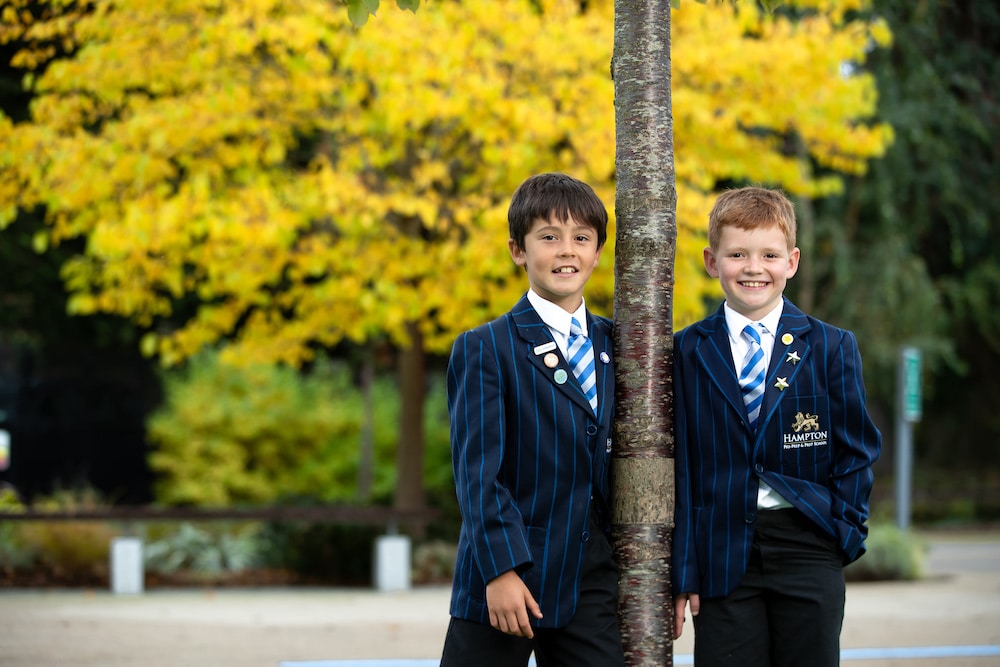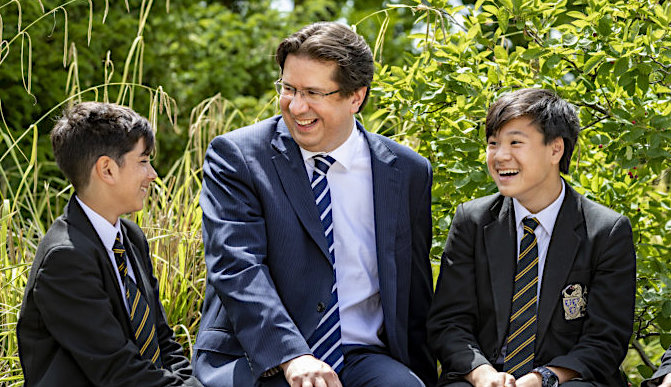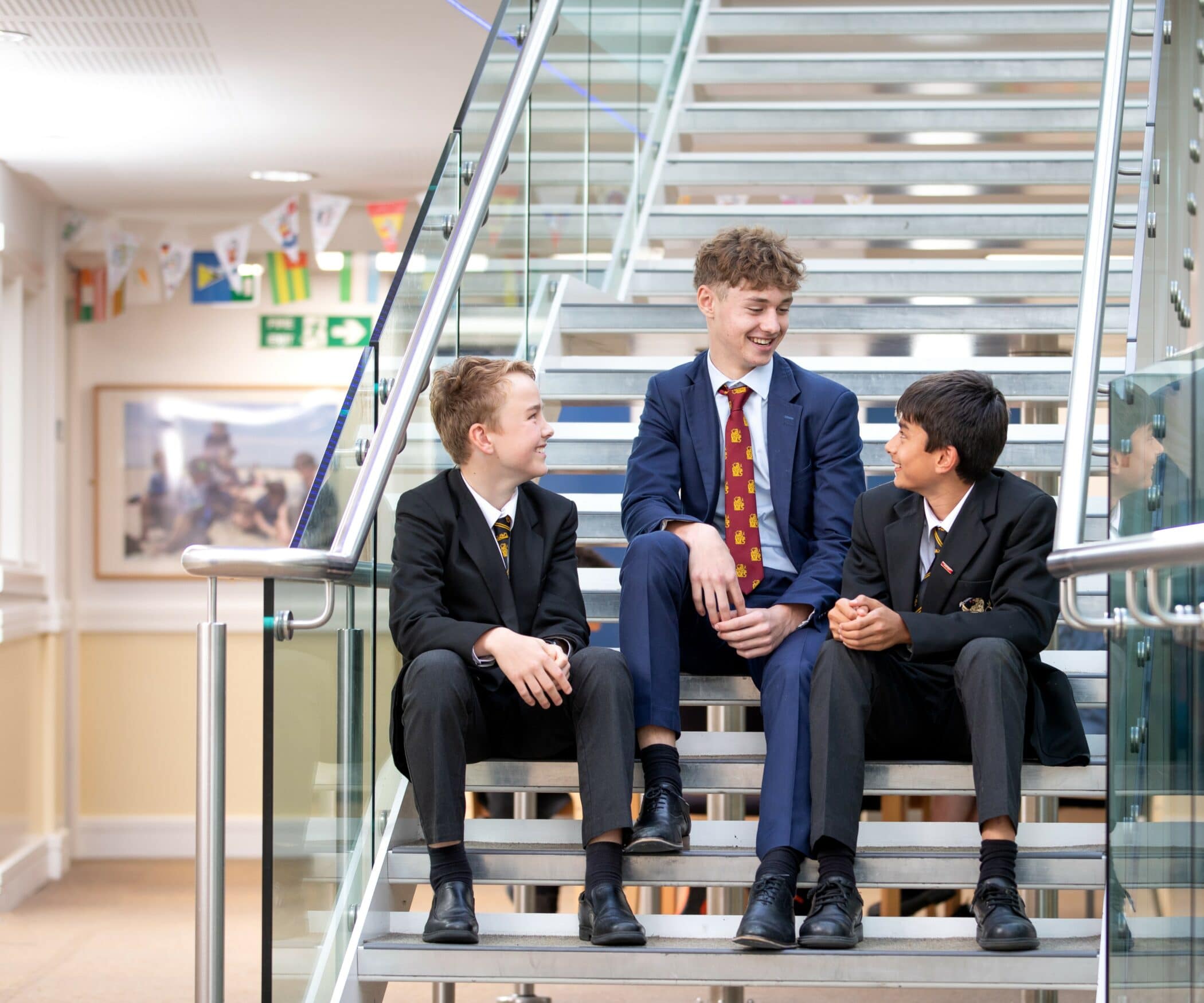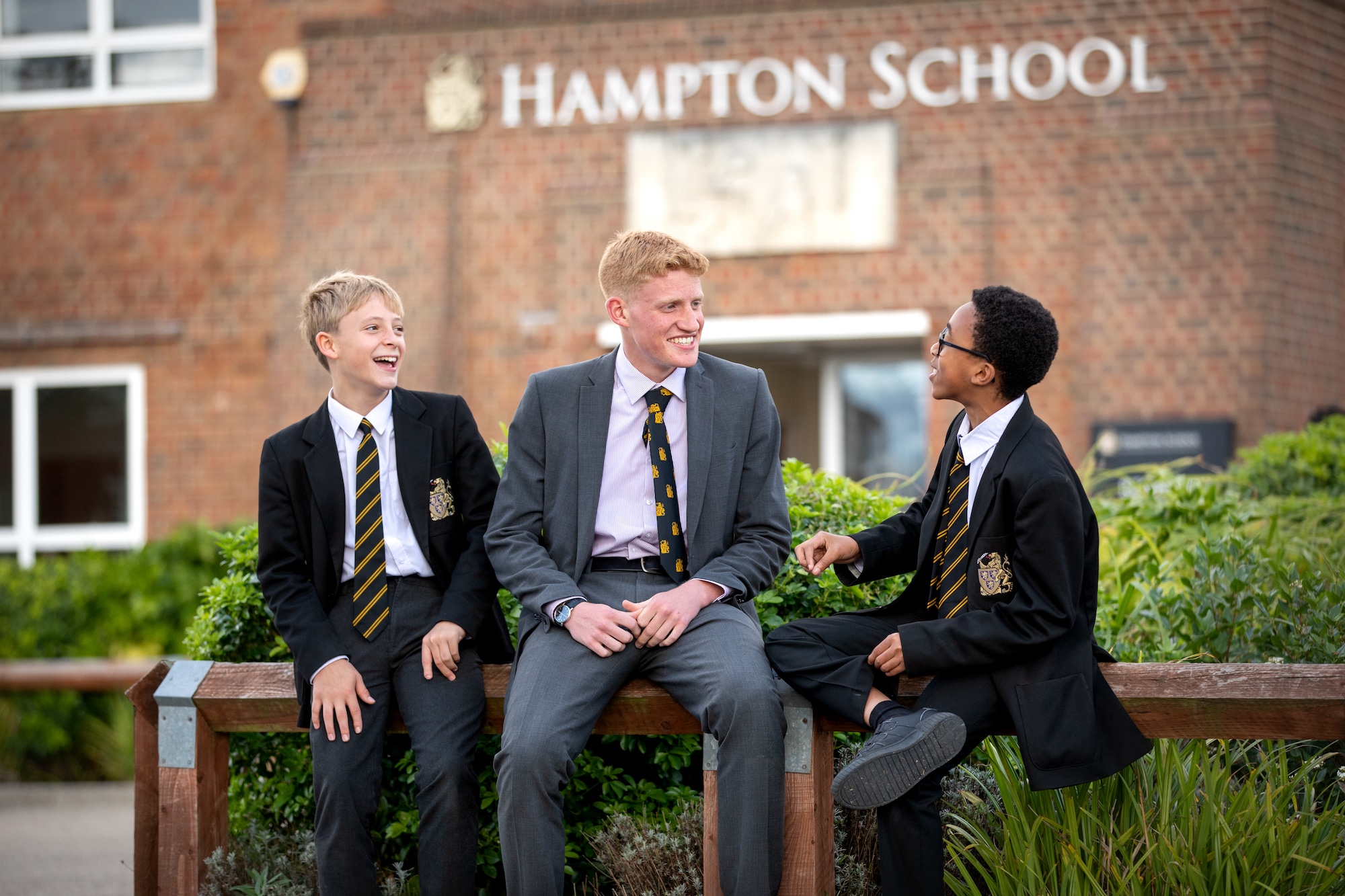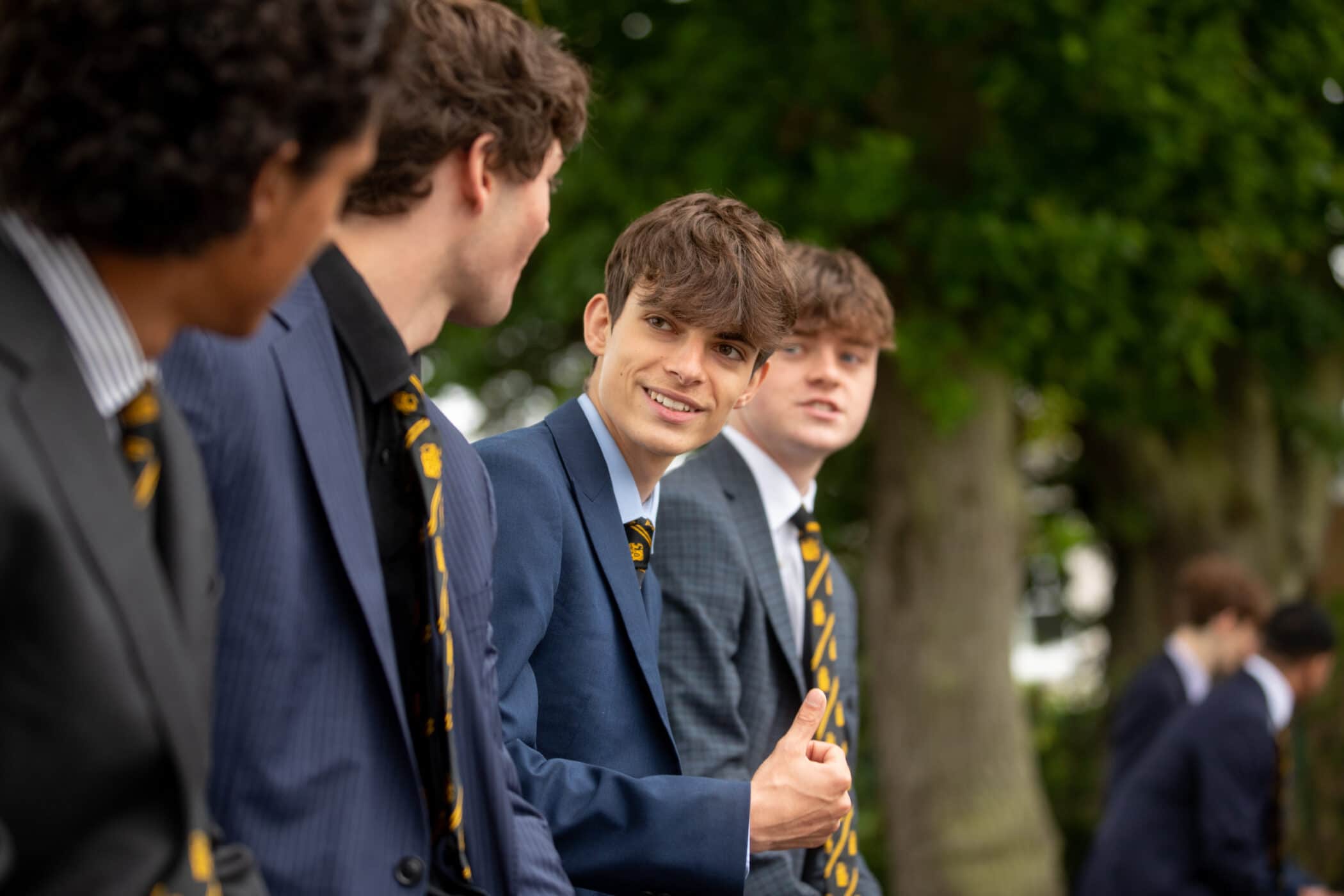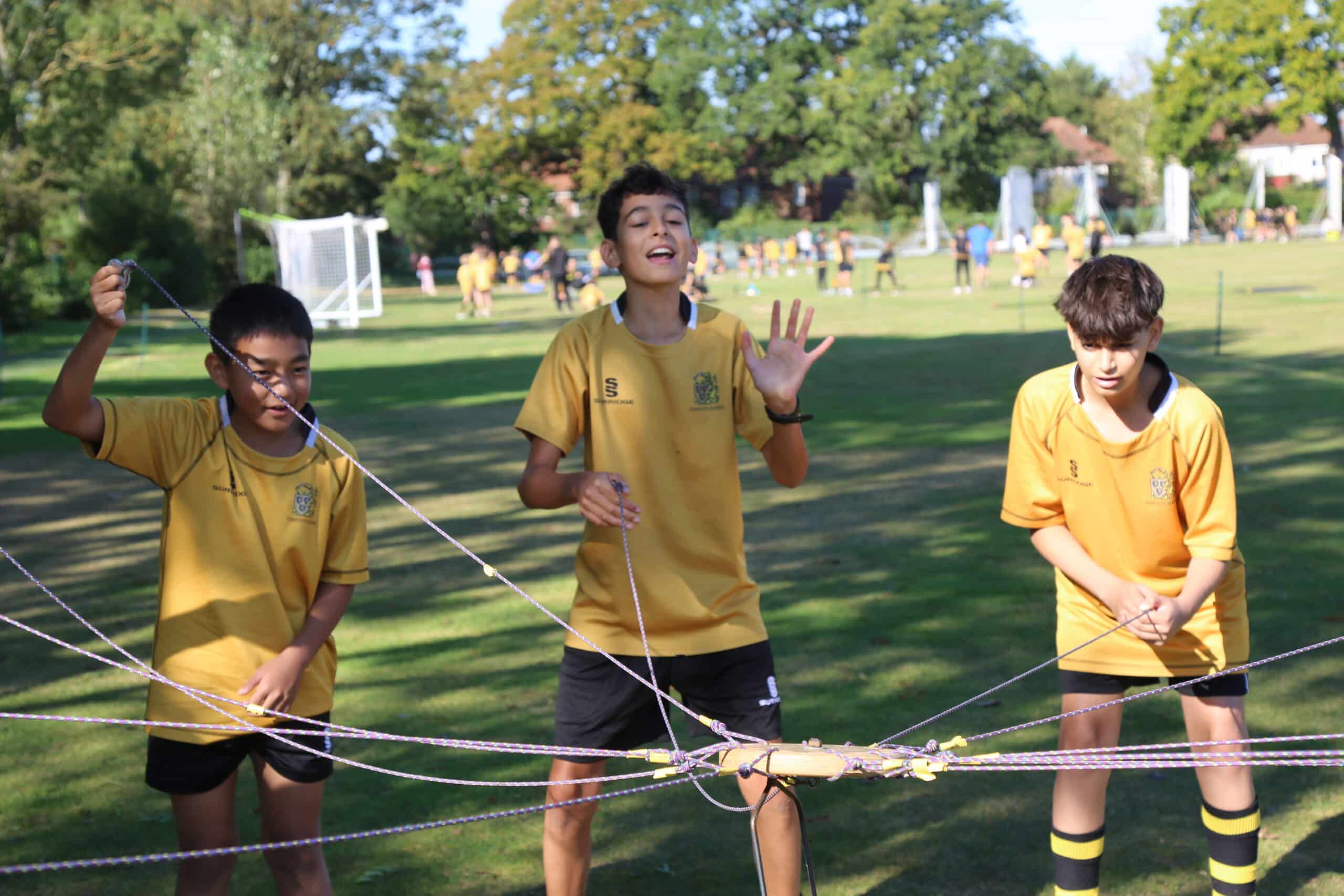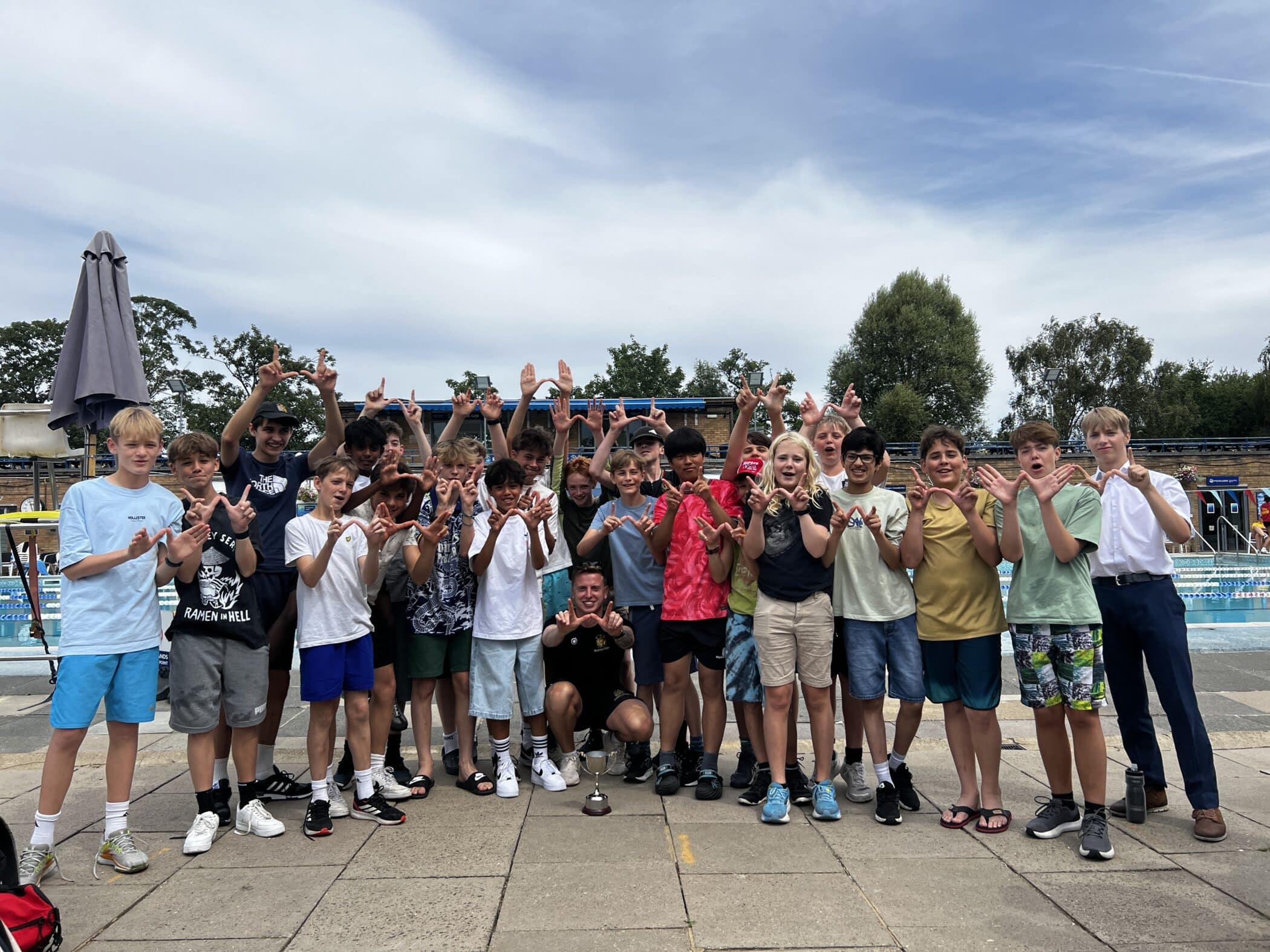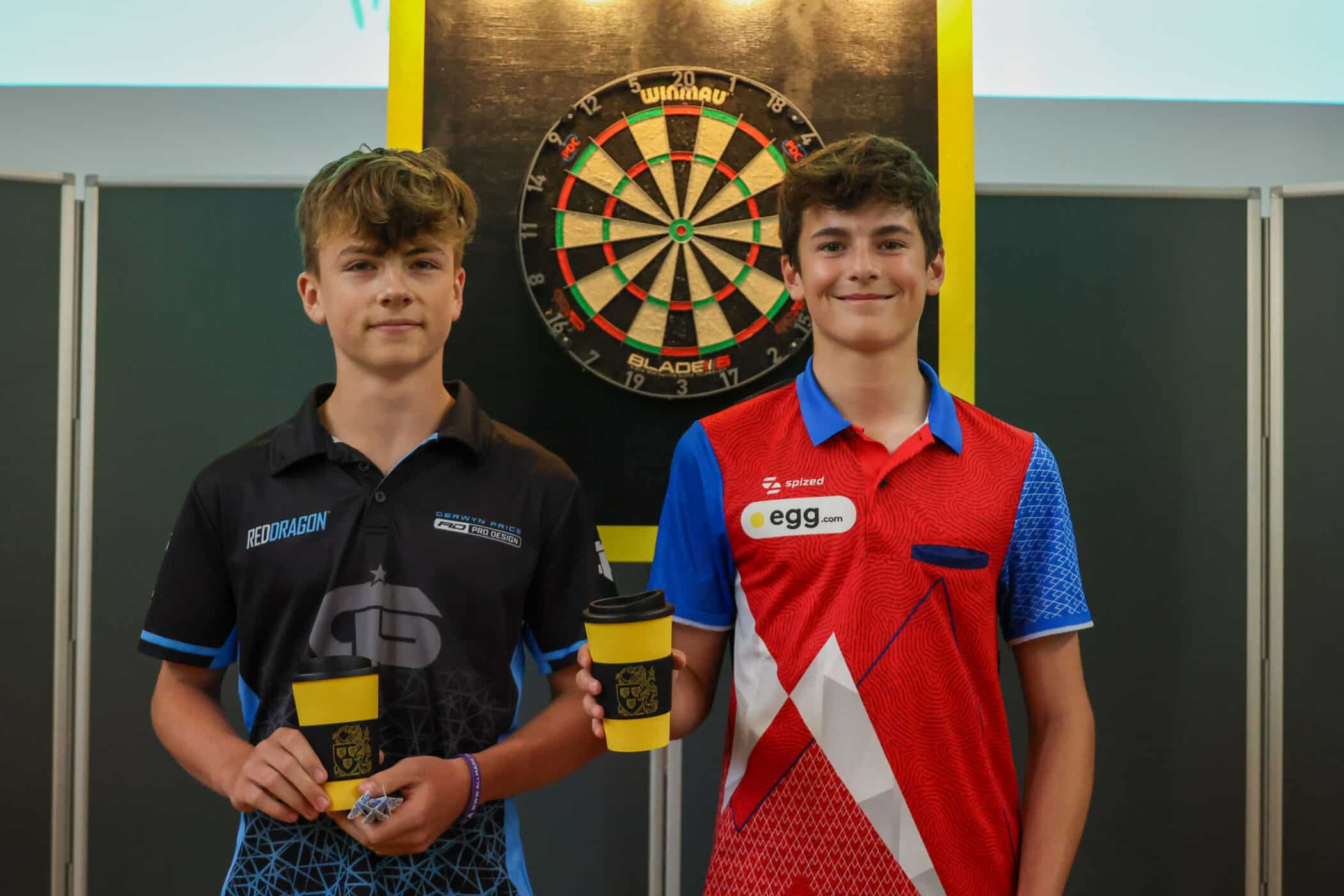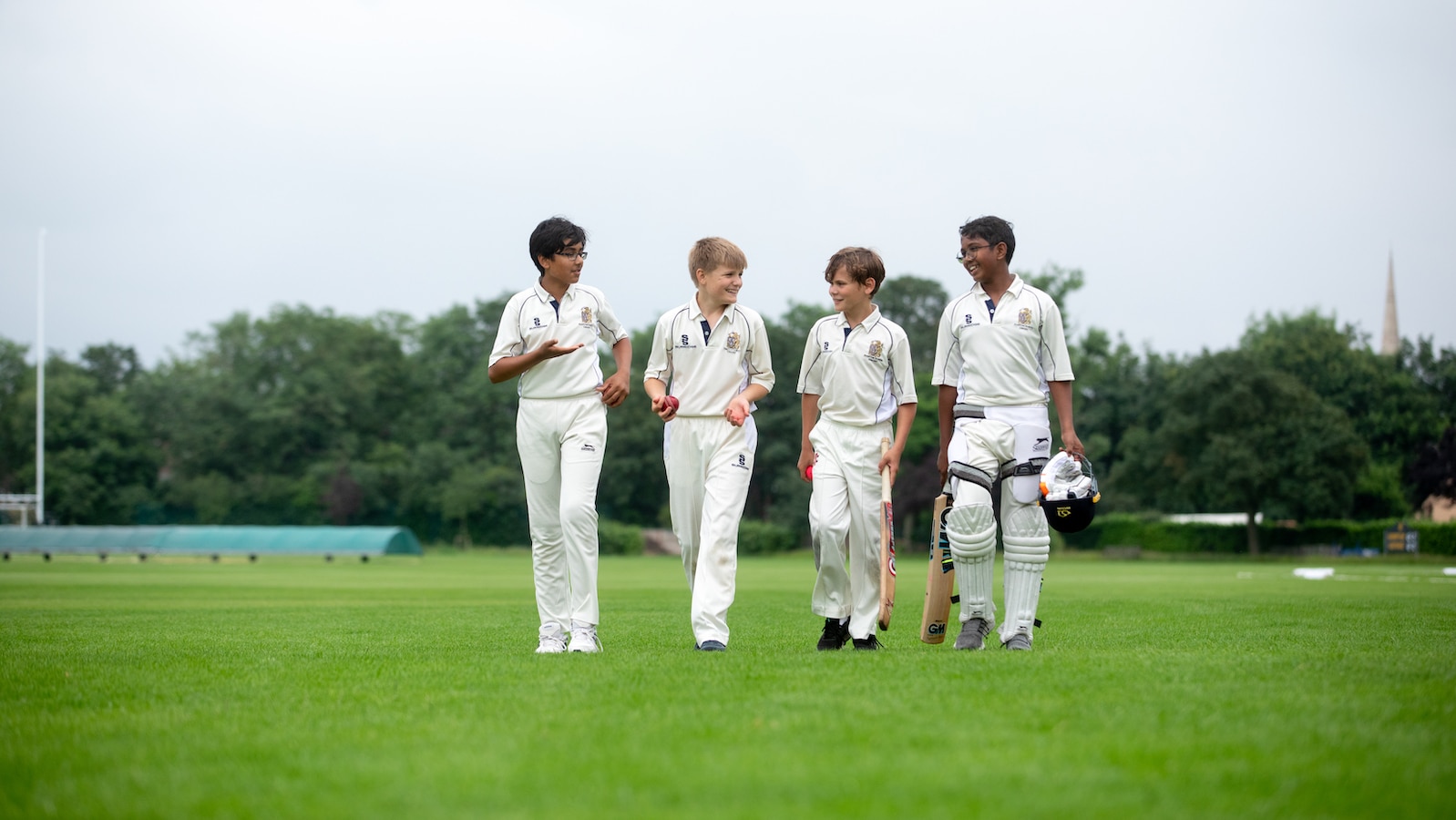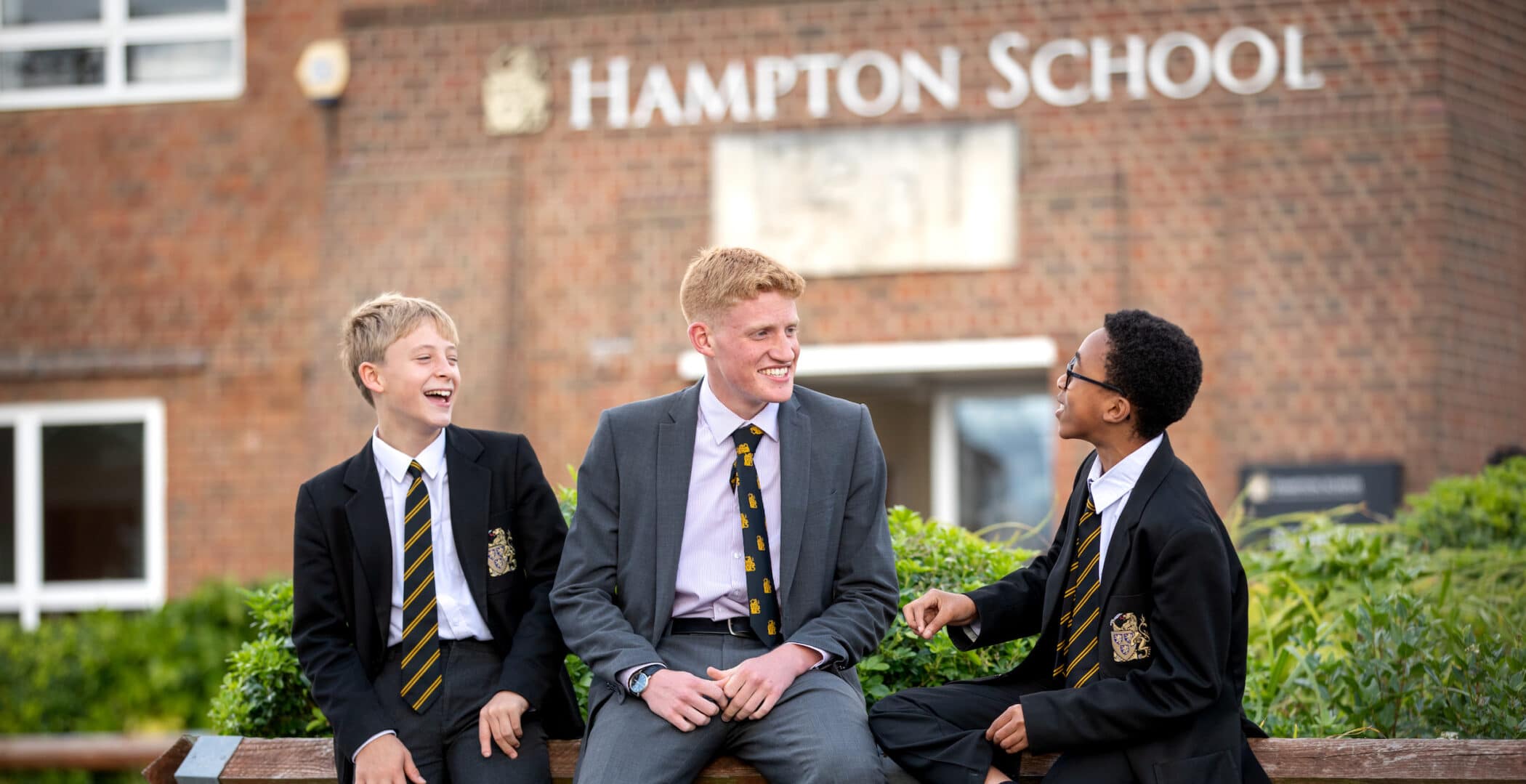Welcome to the Third Year Blog!
In 2015 in the US, a COMPLETELY RIGOROUS research study was conducted amongst 1,000 men aged between 25-60. The focus of the research was related to whether people tucked their shirts in or not.
I will leave you to speculate why this feels like a potentially relevant study for the Third Year Blog to consider, but let us reflect upon the results, which indicated the differences found between ‘tuckers’ and ‘non-tuckers’.
– The survey indicated that tuckers have a 19% higher income than non-tuckers.
– 61% of tuckers reported being happy at work, as opposed to 49% of non-tuckers.
– Tuckers were 22% more likely to say that they are optimistic about the future.
– Tuckers were 10% more likely to report being socially outgoing.
– Tuckers were 8% more likely to report that they regularly go on dates.
Of course, you would be right to try to potentially pick holes in the likely methodology of and motivation for this study and to question whether the likelihood is that those men with higher salaries earnt more money because they tucked their shirt in, or whether they needed to tuck their shirt in because of the more senior role they held and the greater financial reward that came with it.
But, it does beg the question of whether you really want to take the risk of making a sartorial decision that aligns with a potentially lonely, unhappy, pessimistic, poorly paid future?
This is, of course, the eternal battle that the average Third Year Hamptonian faces. Do I choose success and happiness? Or do I choose to leave my shirt untucked?
Just remember that the next time a teacher asks you to tuck your shirt in, they are looking out for your future.
Clearly, the success stories in this week’s blog would not have been achieved without an awareness of the importance of tucking one’s shirt in. These, truly, are boys who know the value of a hidden shirt hem.
Let’s get into it!
Heads of Year Message
Well done to the U14A Cricket Team for their emphatic victory in the County Cup on Thursday!
Exams
Third Year exams will take place next week. Third Year pupils should continue with their preparations for exams over this weekend. We ask that they prepare as best they can and concentrate during the exams to ensure that they aim for personal best. We will ask no more of anyone than that. There is no failure, only learning, if mistakes occur.
Interform Athletics
Interform athletics will take place on Thursday 23 May. All Third Year pupils should attend school in their Hampton PE or Sports kit that day.
National Schools’ Regatta
J14 rowers competing at the National Schools’ Regatta on Friday 24 May will not be issued with a new individual exam timetable, but will be expected to complete the missed exams on Monday 3 June (registering in Form rooms as normal in the morning, then going straight to room S43 for the exams). Best wishes for a strong performance to all those who are competing at the event!
Absences
As normal next week, for medical absences, please notify your son’s Form Tutors via email (cc’ing absence@hamptonschool.org.uk) on the morning of each day of absence by 8:45am, or complete the absence form via the parent portal. For planned absences and appointments, please contact Heads of Year requesting the absence with as much notice as possible.
Boys – keep up the good work over this weekend and next week. Make time for breaks in between purposeful study. Maintain a healthy diet and hydration, along with regular sleep patterns. Continue to be thoughtful and kind to the people around you. Please take care of yourselves this week and let your Form Tutors know about any difficulties or if you need support.
We hope you enjoy showing what you are capable of next week – good luck!
Best wishes
Mr T Rigby & Mrs M Bedford
National Children’s Orchestra
We interviewed Kiran G (3A) about his experiences playing the double bass with the National Children’s Orchestra.
How long have you been playing the double bass?
I have been playing for four years, since September 2019.
What encouraged you to start and why that instrument?
I initially started to play the violin when I was six but I went to a music open day at the Royal College of Music because my sister was considering joining. There, I heard about their double bass programme for beginners, and I thought the instrument sounded fantastic. I applied, and after an audition I was offered a place.
It’s a massive instrument and you’ve just moved to a larger version of it – what difference does that make in terms of playing?
The distance between the strings is much larger, so I am currently improving my string crossings and bowing in general to get used to it. It makes a much bigger, more colourful sound and it is really fun to play.
You’re a member of the National Children’s Orchestra – how did you become part of it?
My sister played the violin in NCO for several years and loved it, so I thought I would give it a go, and have played with them for two years.
What does it involve? How much practice? Do you get to play large concerts?
If you get in after auditioning, they have residential Easter and Summer courses where you spend a week rehearsing in sectionals and as an orchestra for seven hours a day. At the end of the course, we play a big concert in a huge venue.
What has been your most enjoyable experience as part of the NCO?
I really enjoyed playing with other musicians in such a large orchestra, and the pieces always sound great in the concert at the end.
Finally, what is your favourite piece of music to play on the double bass?
The Capuzzi Concerto in D major has been my favourite piece that I have learnt so far.

TALK! Guy Havord
On Tuesday 14 May, sports broadcaster Guy Havord visited Hampton School to discuss one of the great threads linking together most of the Hampton community – football. Mr Havord is a veteran sports broadcaster, covering everything from Hull City to the Champions League and he has interviewed the likes of Cristiano Ronaldo, Mikel Arteta and the Arsenal ‘Invincibles’ squad. A seasoned reporter, Mr Havord talked first about his career in sports journalism, before moving onto discussing football in general, in particular the Premier League over the years, how the current season has been so entertaining and how, as an Arsenal fan, the idea that his team could win the league this season seemed more realistic in his heart than in his mind. Mr Havord also discussed the issue of money in football and whether there was too much in the Premier League at the moment.
Overall, it was an extremely interesting Talk! that attracted numerous football fans and provided a nuanced analysis of football’s past, present and future. It truly was a great way to end the Talk! series this year. My thanks to all the speakers and organisers for a great season of Talk!
Report by Rory M (3A)
Cricket
The U14A cricket team played a Middlesex Cup match on Thursday against St James’ School. After a tough start to the season, would they be able to build on their recent successes?
Yes.
Having dismissed their opposition for 95 runs, with Xavier K taking 4 wickets for 4 runs, they chased down the total comfortably, lead by Ashton C’s 75 not out.
A great effort, taking them through to the next round. They may not have won a friendly fixture yet, but they haven’t lost a cup match…
This week, I have asked the team to offer three words each to describe the match. Some of them were unable to – maybe if I had asked for three equations, or chemical formulae, I may have had more luck. But the words that those who did respond chose reflected a strong victory. Only four words got mentioned twice: ‘sharp’, ‘victory’, ‘exciting’ and ‘impressive’, which would all be enough to leave Mr Hooper, their coach, delighted.
Well done all and on to the next round!
UK Schools’ Chinese Bridge Speaking competition
Last week, five Hampton pupils, including four Third Years (Arshan N, Haadi H, Charlie E and Kiran IB) competed in the UK Schools’ Chinese Bridge Speaking competition. Despite fierce competition, they were able to come second, which is an incredible achievement.
Charlie E and Kiran IB took the time to speak to us about the experience…
What form did the competition take? What did you have to do?
To get to the final, we submitted a video of us performing a play on a subject of our choice, in which we all spoke only Mandarin. Once we were there, this video was then played in front of everyone, and we all went up on stage. The judges then asked our two representatives to answer questions about the video, speaking only in Mandarin. (CE)
Were you confident of doing well as you went to the competition?
I think we were confident with our skills and that we could earn a podium place. (KIB)
I was confident we were going to do well, although still quite anxious. (CE)
What was your favourite part of the competition?
The pandas that we were given to keep (just toys sadly). (KIB)
I really enjoyed watching the other school and comparing our progress and knowledge to theirs. (CE)
What have you most enjoyed about learning Chinese language?
Probably learning about the culture, and also getting the opportunity to compete in a competition. (KIB)
I’ve really enjoyed the difference of characters and learning a new way of writing. The culture lessons are also amazing. (CE)
What is the most challenging thing about learning Chinese language?
Definitely being able to string together complex sentences. (KIB)
Learning to remember the characters. It quite easy to remember the sound and to be able to speak it, however writing can be more difficult to remember. (CE)
We should also congratulate Yaseen M (Fourth Year) who was also part of the team; as well as Lower Sixth Formers Nicky W, Robert N and Charlie P, who helped them prepare; and Miss Zhang who organised it all.
Well done to all of you!

Arts Award Review, Crawley Festival of Words & Ealing Book Festival
On 16 March I participated in a creative writing workshop as part of the Crawley Festival of Words hosted by the author Caroline Green. She has had several books published, interestingly using different variations of her name for children, thrillers and crime focused books. This talk focused on making detectives in crime stories believable but interesting. I was in a small group with 10 adults, and Caroline guided us through some techniques to use in character and plot development – often involving not being very nice to our lead characters. It was a very interactive and enjoyable session. During a break Caroline very kindly answered some questions for me for my Arts Award. Exercises during the event included writing a sheet of information about your character and thinking about what they did for their ninth birthday. These exercises were helpful in getting me to think more about my character and what motivates them. It was a brilliant event for me to attend and I had a great time. It was really good getting me to think about my character and I would score it a 10/10 in terms of usefulness for my Arts Project.
In April I attended two book talks at The Ealing Book Festival with my father. I had never attended a book festival before and so was very excited. The first event was a talk by Eleanor Catton, a booker prize winning writer, advertising her new book Birnam Wood. She was interviewed by Loraine Heggessey, former head of BBC1 and talked about a range of topics including her writing process and the business of getting writing published. Other topics included technology and how it is apparently stopping the flow of creative thinking into children’s brains at a young age, how writing has changed for her over her career as an author and how books are written. She also talked about winning the Booker Prize for her second novel (The Luminaries), mentioning how it massively impacted her career and made her name as a professional author. She also advertised her new book Birnam Wood, saying the process she went through to get to the publishing phase of the book and why she chose Macbeth as the Shakespeare play that she based the title on. I thought that her remarks on ambition being one of the most difficult things to admit about ourselves were insightful, as was her brief analysis of Macbeth.
The second talk that I attended the next day was about spy fiction featuring the granddaughter of Kim Philby – Charlotte Philby; Jake Kerridge and Alex Gerlis. They were all very knowledgeable on their areas of expertise in the spy fiction world and were thankful that it had been included in a separate genre, as they said that they often found that spy fiction was lumped in with the category of crime fiction. They shared the stage well and I enjoyed their amusing debates and banter between the panellists. One of the great remarks I found was made by Jake Kerridge, who said that he believed that journalism was a type of storytelling. The big difference was that “One falsehood in a news article can ruin the whole article, but one truthful fact in a spy story can make the whole story more believable”!
He believed that a journalist had to find the best possible way of telling a story so that it sold the most newspapers. They also all agreed that we are currently in a golden age of spy fiction but there does seem to be sexism in the target audience with publishers often a requesting changes that appeal more to a male audience when there is also a large female audience.
Overall, the two author talks were very valuable to my Arts Award Project, as they made me think about both my target audience and how I wanted my Arts Award to be constructed. They were amusing and insightful and provided a whole new insight into literature for me. Overall, I would have rated these events 9/10, their only pitfall being the lack of productive questions from the audience at the end of the book talks.
By Rory M (3A)
A new legend – continued
Lucas Z’s epic tale continues this week with the Second Defilian War!
Click the link here to find out what happens next…
TWO TRUTHS AND A LIE
Last week, Mr Perry, the U14A rowing coach was the member of staff who was flagrantly lying in a public forum. Yes, he lied, but which of these statements was that offending item?
- Mr Perry won the national schools’ regatta
- Mr Perry climbed Macchu Picchu in a Huddersfield Town shirt
- Mr Perry coached a crew to a Bronze medal at the coastal rowing world championships
Mr Perry is a staunch Huddersfield supporter, so it is no surprise that he chose to grace one of the most striking examples of ancient city building in the entire world with the blue and white stripes of the Terriers. Mr Perry is an excellent rowing coach, so it is equally unsurprising that he coached a crew to a medal at the coastal rowing world championships, even if it is a discipline that represents a different challenge to river rowing. What is surprising is that Mr Perry didn’t take up rowing until he went to university, meaning that he couldn’t possibly have won the National Schools’ Regatta.
This week, Miss Alexander steps up to the plate. Which of these is a lie?
- Miss Alexander once hugged a shark
- Miss Alexander once had her arm broken by a swan
- Miss Alexander has never been to Nando’s
Find out next week!
CONNECTION CORNER
Well done to the everyone who had a go at last week’s Connection Corner. Merits go to all those who correctly guessed that the answers were all Flowers. Big shout out to Aarav D, Konrad R, Oliver C, Harry L, Ishaan A, Josh G, Kiran G, Darshan S, Luke F, Rory M, Olly P, Dmitriy U and Mrs Pickford Scienti!
Another tricky one to have a go at over the weekend:
In case you’re still perplexed, here are the answers from the last week’s conundrum:
What is the Welsh symbol? Daffodil
What is the name of the character played by Kate Winslet in Titanic? Rose
Digitalis is a drug used to treat heart disease and is commonly derived from what? Foxglove
What is the coloured tissue at the front of the eye that contains the pupil called? The iris
Connection: Types of flowers (Daffodil, Rose, Foxglove and Iris)
Back to All Blogs

